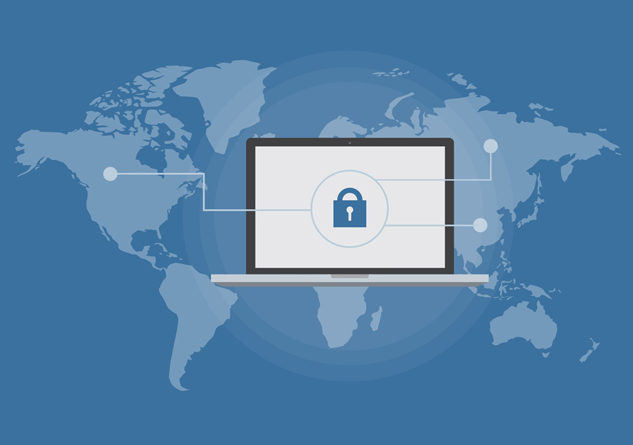Shelly Palmer
Apple CEO Tim Cook and Facebook CEO Mark Zuckerberg have been all over the news this week. Mr. Cook has admonished Mr. Zuckerberg for Facebook’s current predicament and has been exceptionally self-serving proclaiming Apple’s data privacy policies as moral high ground.
Before your eyes glaze over and you decide you are already a world-class expert in this subject, or worse, you think data is someone else’s issue, or much worse, you don’t think there’s anything you can do about your data, let’s review:
Apple vs. Facebook
Apple is a hardware company. It sells the most expensive computers and consumer electronics hardware you can buy. Because of its extreme pricing, Apple enjoys extreme profit margins. This is how it has amassed over $235 billion of cash on its balance sheet. Apple uses data to its benefit, and it has absolutely no need to make its data available to anyone for any reason. Apple makes more than enough money selling hardware. Apple also sells software and content. Both are profitable businesses. Apple doesn’t need to share any of that data with anyone either.
On the other hand, Facebook does not sell hardware or software or content. It sells you. In order to do this, it provides you with all kinds of services you find valuable. When you agree to use Facebook, you are exchanging data that describes how you use Facebook’s platform and the related services (sometimes provided by third parties) for the right to use the services. Facebook has privacy policies. You may or may not like them, but they are articulated in the privacy section of Facebook’s interface and you can set them as you see fit. Could Facebook do a better job? Absolutely. I did my best to explain some of Facebook’s issues in an essay titled “What Facebook Data Did They Get and What Did They Do?”
Does Apple have a better business model than Facebook? That’s for shareholders to decide. But there is no way to make an “oranges to oranges” comparison between the two companies.
What if Facebook Agreed Not to Share My Data with Anyone?
How different would your experience be if Facebook decided that it would not share any data with anyone? The company would simply use the data it collects to support its business model, which is, selling you to advertisers, sponsors, and content producers.
For all practical purposes, your experience on Facebook would not change. The algorithms the company uses to keep you engaged with the platform would still be continuously tuned to achieve better outcomes for Facebook’s shareholders. The content you see would still be valuable. The entire reason you use Facebook would not change at all.
What Would Change?
Everything! If the government regulates Facebook, the regulations will apply to every data-collecting entity that does business in the United States. With over 2 billion registered users, Facebook would own the largest data set reflecting user aspiration. Aspiration is a valuable currency that can be transformed into cash. Advertisers want to know what you aspire to, and you give that information to Facebook with every item (bit of data) you post, what you click on, read and consume on the platform.
Google would own the largest data set reflecting user intention. You don’t intend to go to Google; you go to Google and tell it what you intend to do. Google has transformed the currency of intention into over $100 billion of annual revenue.
To round out FANG (Facebook, Amazon, Netflix, and Google), Netflix would own the largest data set reflecting user passions, and Amazon would own the largest data set reflecting user consumption.
Tight regulation restricting the sharing of data outside these companies would create government-granted data monopolies on the four biggest data-driven currencies: aspiration, intention, passion, and consumption. Advertisers, sponsors, and content providers would have zero bargaining power against these data sets. Regulation would kick traditional media while it is down and would empower giant tech companies to rule the world.
It Gets Worse
Without the ability to leverage the data collected by large platforms, start-ups would need funding to purchase access. Maybe that’s a good thing. There’s lots of capital sitting on the sidelines, and perhaps the venture capitalists would enjoy a U-turn back to the days when start-ups actually needed money to start up.
No matter how you look at this, the consequence of overzealous regulation will be the creation of a handful of de facto dataopolies. It would be wrong to call this an unintended consequence. It’s hard to imagine how government regulation could result in anything else.
What to Do
First, poke some holes in my theory. Beat me up over this and tell me where I’m wrong. But please, don’t get political here. Be an American, not a partisan. My thesis is that tight regulation of data and data privacy will result in de facto dataopolies – specifically, Facebook, Amazon, Netflix, Google, Apple, Microsoft, Salesforce, AT&T, and Verizon. And that while super-tight regulation might protect some version of individual data privacy, the legislation would also be egregiously anti-competitive.
Please share your thoughts, comments, and suggestions with me at info@shellypalmer.com. Data – specifically, data privacy – is one of the biggest issues of our time. Let’s start crafting guidelines and solutions that will result in outcomes that work for everyone.
Author’s note: This is not a sponsored post. I am the author of this article and it expresses my own opinions. I am not, nor is my company, receiving compensation for it. BTW: The title is correct. It’s a parody of a mistranslation from the video game Zero Wing (which I used to play) that became the meme, “All your base are belong to us.”






